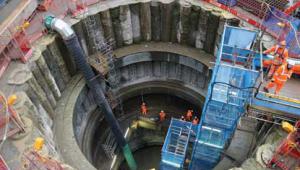Examining the effectiveness of actions to control spending on consultants and other temporary staff, MPs said issues identified by the committee in 2010 “have not been properly addressed”.
They highlighted that spending on consultants and temporary staff had initially fallen as part of the government’s deficit reduction drive from 2009-10 to 2011-12. However, since then, costs had increased again, by as much as 90% in some cases, and MPs said they were “not convinced” the Cabinet Office has a clear strategy to reduce the skills gap across government that could constrain the pay bill.
PAC chair Meg Hillier said consultants and temporary staff can be a flexible part of the government workforce, but they can cost twice as much as permanent employees.
“Funds that could be spent on services are instead going to pay costly and avoidable bills for staffing. This is simply not good enough,” she stated.
“There is a place for buying in expert advice and using temporary staff if there is a skills gap but departments first need to be sure they do not have access to these skills in-house. Getting this wrong costs the taxpayer dear.”
Today’s Use of consultants and temporary staff report said the committee would expect much better planning of skills needs across government and a clearer view from the Cabinet Office of the place of temporary resources in the overall workforce.
It found the main 17 government departments and their agencies spent between £1bn and £1.3bn on consultants and temporary staff in 2014-15, up from around £700m in 2011-12. This was still down from the 2009-10 peak of £2.7bn.
The committee recommended that all departments should produce a strategic workforce plan by December that covers their entire group for the next five years, identifying expected ‘skills gaps’ and how they will be filled.
Ministers must “get a grip” by identifying where skills are lacking in-house and put a proper plan in place to deliver those skills through the recruitment and development of high quality, permanent staff, Hillier added.
“Filling permanent roles with temporary staff is short-sighted and does nothing to address underlying skills shortages in the civil service, nor to develop its expertise. When temps leave, valuable experience leaves with them.
“The Cabinet Office has a key role to play in this and we will expect to see a greater clarity of purpose when we hold officials to account for their progress in the year ahead.”
Responding to the report, a Cabinet Office spokesman said: “We are carefully considering the recommendations of the report and will respond in due course. This government is scrutinising spend like never before. We've stamped out excessive spending on consultants and put in place stringent spending controls. The total spend on consultants is still less than half of that in 2009/10.
“We are actively building the skills we need to improve our delivery capability in a number of areas. But of course, sometimes we need specialist expertise quickly, especially where we are undertaking complex transformative projects and need to draw on experienced minds. But we only do this when the key skills are not readily available within the civil service and where it delivers better value for taxpayers.”





















